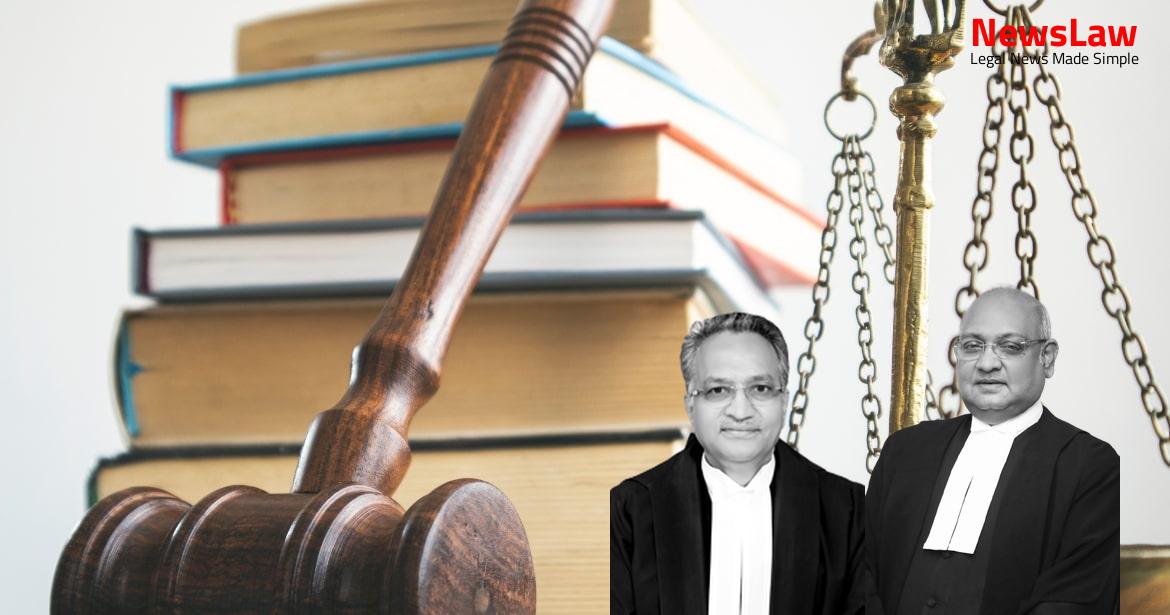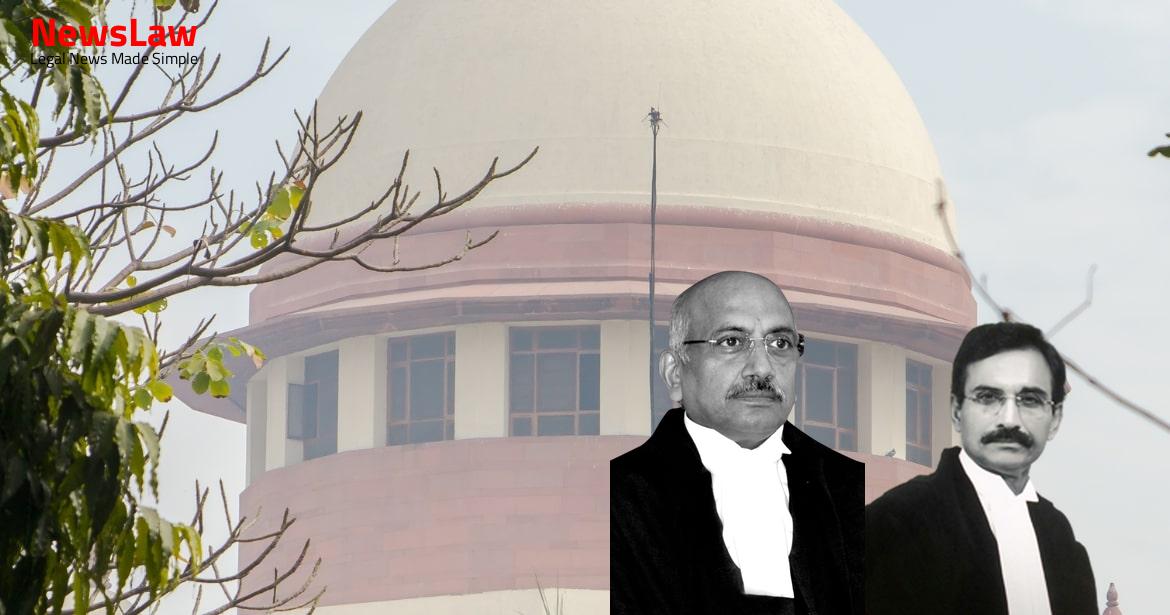In a significant legal decision, the Supreme Court of India has upheld the rights and benefits of workers in the case concerning entitlements to government holidays and overtime compensation. The judgement, which impacts the respondent-employees, sets a precedent for fair labor practices and highlights the importance of upholding worker’s rights. Learn more about this crucial ruling in the realm of employment law.
Facts
- Government issued a resolution in 1980 revoking all previous holiday orders for workmen in the Irrigation Department.
- New guidelines were put in place for employees in zonal, divisional, and sub-divisional offices to receive public holidays and holidays on the 2nd and 4th Saturdays of each month.
- The resolution clarified that compensatory leave should be granted in the rainy season to workmen entitled to it.
- Despite multiple representations, the appellants did not grant the respondent-employees access to government holidays and holidays on 2nd and 4th Saturdays.
- Industrial Court confirmed that the complainants were entitled to government holidays and overtime compensation for working on holidays.
- All previous conflicting holiday orders were consolidated into one set of guidelines for clarity.
- Regional workmen were only granted public holidays on specific dates due to the nature of their work.
- Compensatory holidays were to be given to those working on designated holidays as per written instructions.
- Holidays on 2nd and 4th Saturdays were not initially granted to all regional workmen as per the new resolution.
- The High Court affirmed the invalidity of the State Government’s Circular from 27 May 1996 excluding certain employees from benefits.
- The Circular contradicted the 13 Kalelkar Award’s provisions and previous High Court precedents.
- The High Court upheld the Industrial Court’s decision that employees covered under the Kalelkar Award are entitled to Government holidays and overtime pay for working on the 2nd and 4th Saturdays.
- The Industrial Court directed the appellants-employer to grant entitled holidays and provide appropriate overtime payments to the respondent-employees within a month.
- The Industrial Court ruled that the Circular issued by the Government on 27 May 1996 did not exclude the complainants (respondent-employees) from benefits as it only concerned cases disposed of and pending before the Industrial Court at Bombay.
Also Read: Landmark Judgement on Pensionary Benefits in SSD Fund Case
Arguments
- Learned counsel representing the respondent-employees argued that the demand for holidays on the 2nd and 4th Saturdays and additional compensation is based on a misinterpretation of the Kalelkar Award and relevant regulations.
- The privileges granted to permanent employees, such as additional holidays and overtime wages, cannot be extended to respondent-employees who are considered temporary workers.
- The respondent-employees were claimed to be entitled to benefits under the Kalelkar Award, including government holidays, holidays on the 2nd and 4th Saturdays, and overtime pay at a rate of one and a half times the salary as per the Kalelkar Award.
- The appellants-employer was accused of engaging in unfair labor practices by denying rightful benefits and compelling respondent-employees to work on designated holidays without proper compensation.
- The demand for holidays and reimbursement of back wages for duties performed on holidays, along with other benefits reserved for permanent staff, was deemed unjustified and untenable by the appellants’ counsel.
- The appellant-employer violated the provisions of the Kalelkar Award.
- The Industrial Court was justified in granting relief to the respondent-employees.
- The High Court affirmed the order of the Industrial Court after detailed consideration of facts and law.
- The appellant-employer failed to issue the notice required under Section 9A of the Industrial Disputes Act, 1947, when changing the service conditions of the respondent-employees.
Also Read: Supreme Court Quashes Reduction in Pay Scale Decision and Recovery Order in Bihar Govt. vs. XYZ
Analysis
- The Circular issued by the Government on 27 May 1996 does not apply to the respondent-employees who are under the Kalelkar Award and entitled to benefits such as public holidays and overtime allowances.
- The respondent-employees, except those on daily wages, are entitled to the holiday benefits as per the Kalelkar Award demand number 5.
- The Industrial Court and the High Court correctly granted relief to the respondent-employees based on the provisions of the Kalelkar Award.
- All categories of employees, except daily-wage ones, are entitled to public holidays approved by the Government as per the Kalelkar Award.
- The Circular does not make the shifted employees ineligible for the benefits outlined in the Kalelkar Award such as government holidays and overtime allowances.
- Employees on daily wages entitled to three paid leaves in a year
- Paid leave to be on 26th January, 15th August, and 2nd October
- Practice of providing paid leave on these dates to continue
- Findings of the Industrial Court were upheld by the High Court.
- The writ petition filed by the employer against the Industrial Court’s award was dismissed.
- The decision was reaffirmed, indicating the strength of the Industrial Court’s ruling.
Also Read: Acquittal of Accused Appellants in Mohmedfaruk @ Palak Safibhai Memon Case
Decision
- The impugned judgment dated 15 November, 2014 has no flaws that would justify interference.
- The appellants-employer must adhere to the order from the Industrial Court, upheld by the High Court, within eight weeks.
- Any pending applications will be resolved accordingly.
- The appeal is dismissed.
Case Title: SECRETARY, PUBLIC WORKS DEPARTMENT . Vs. TUKARAM PANDURANG SARAF . (2024 INSC 703)
Case Number: C.A. No.-001689-001689 – 2016



